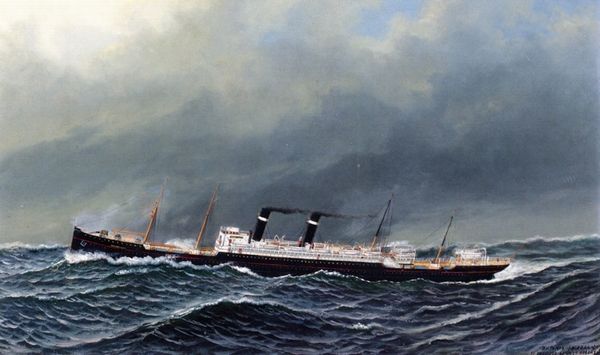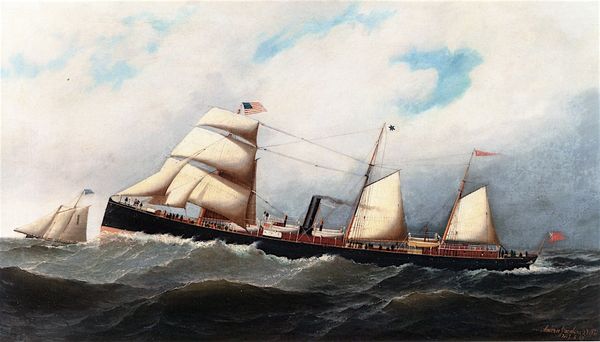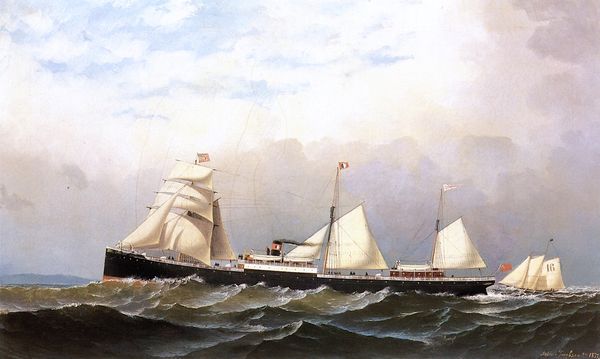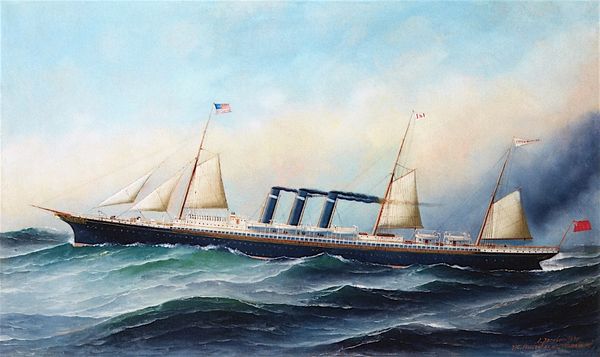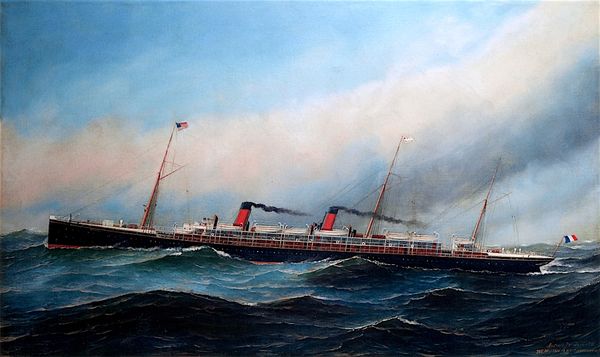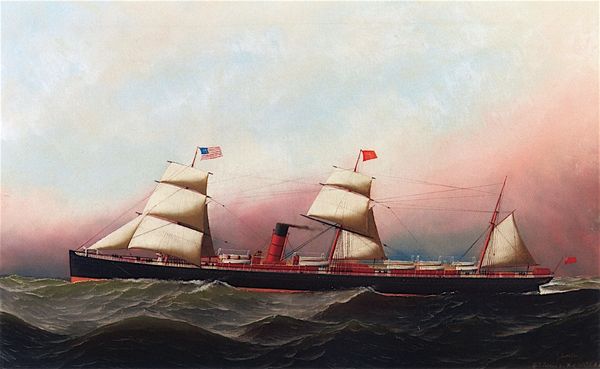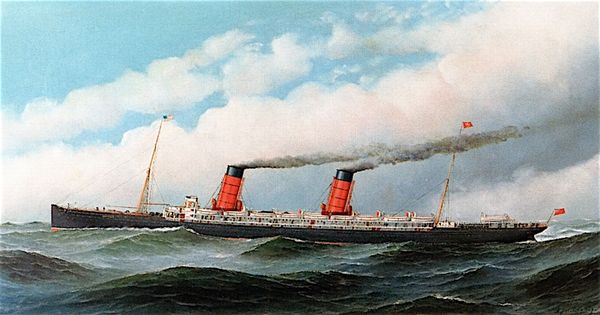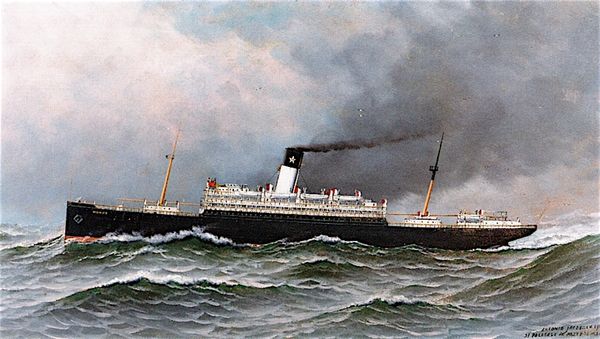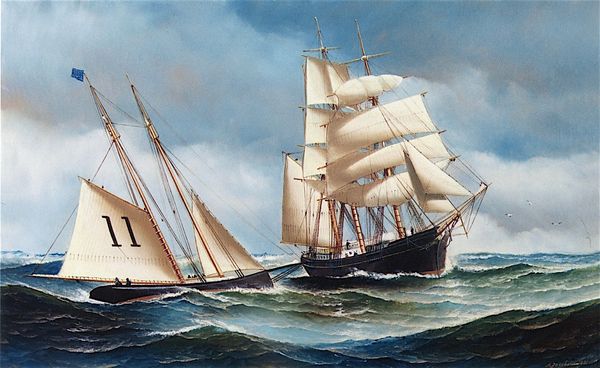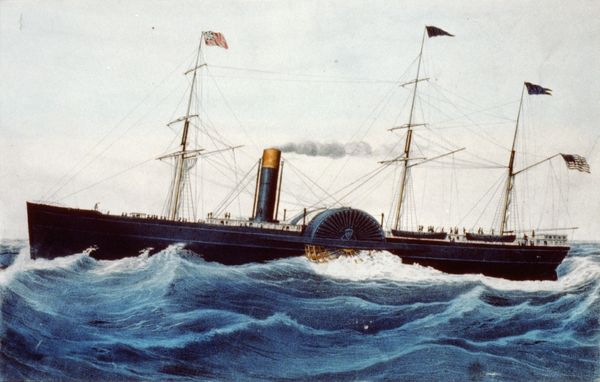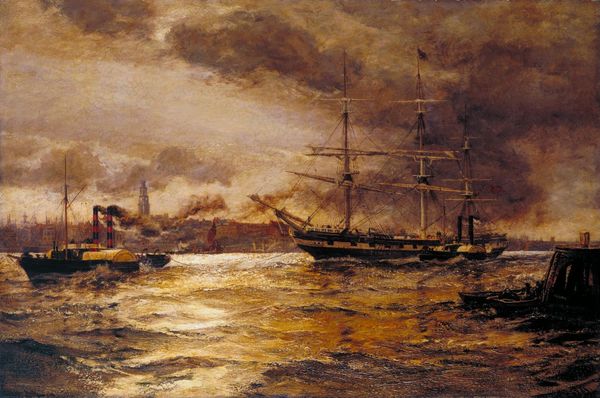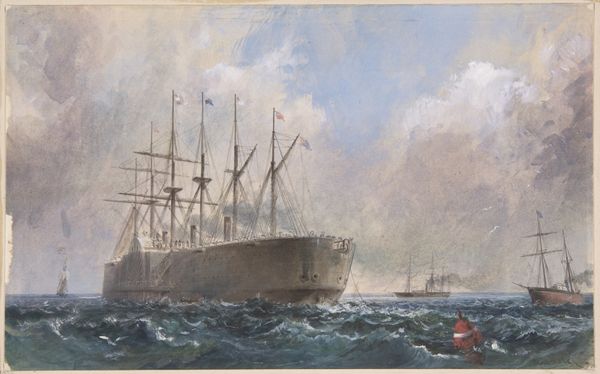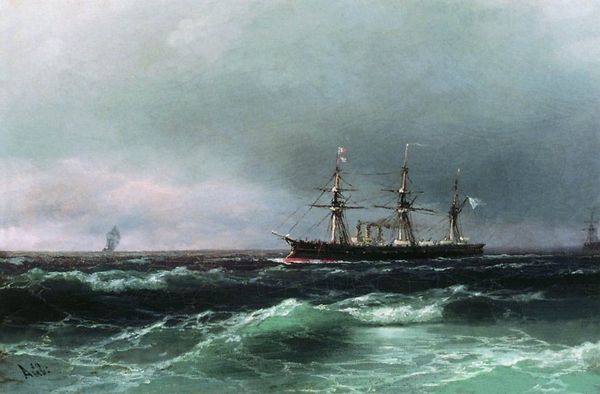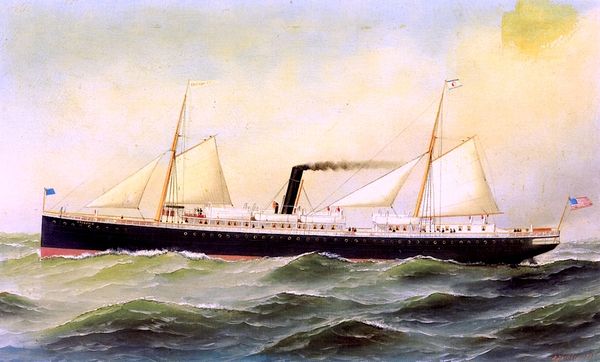
Copyright: Public domain
Curator: The painting before us, "The S. S. France of the French Line at Sea," was created in 1878 by Antonio Jacobsen. Painted with oils, it presents a portrait of maritime power and human ingenuity. What's your first take? Editor: I'm immediately struck by the drama! There's a real sense of the ship battling the elements. The dark, turbulent sea contrasts sharply with the glimmering break in the clouds above. You feel the immensity and the peril. Curator: Absolutely. And considering Jacobsen's oeuvre – he was prolific in maritime portraiture – how do you think this piece intersects with ideas about national identity and industrial progress in the late 19th century? Ships, then, are like nation-states navigating turbulent global currents. Editor: It speaks volumes. The "France" here isn't just a mode of transport; she embodies national prestige, technological advancement, and colonial reach. There’s the romance and the brutality tied together, as a visual articulation of burgeoning French power during that era. Think about the socio-economic disparities embedded in accessing passage on such a ship. Curator: I concur. And beyond its socio-political weight, the painter's sharp focus on representational accuracy provides such rich details. Notice the precise rendering of the ship's rigging. Editor: But that realism can also feel strangely devoid of human presence. It's a portrait of technology overcoming, even dominating, nature, seemingly untroubled by human stories. What impact do you believe that choice has, culturally? Curator: It is interesting. Maybe, in his dedication to portraying the mechanics of the ship itself, Jacobsen directs us away from focusing on individual lives. Yet this is also a historical document – showcasing both national ambitions and the sheer technical achievements of shipbuilding in that period. Editor: It's this tension – between national pride, human stories lost in industrialization, and our current environmental awareness – that makes this painting resonate even now. A potent reminder that progress is rarely without cost. Curator: Yes, thinking about the intertwined aspects of technological advancement, social consequences and artistic expression here has definitely deepened my appreciation. Editor: Indeed, seeing beyond just a ship on the sea opens up all sorts of important historical perspectives.
Comments
No comments
Be the first to comment and join the conversation on the ultimate creative platform.
